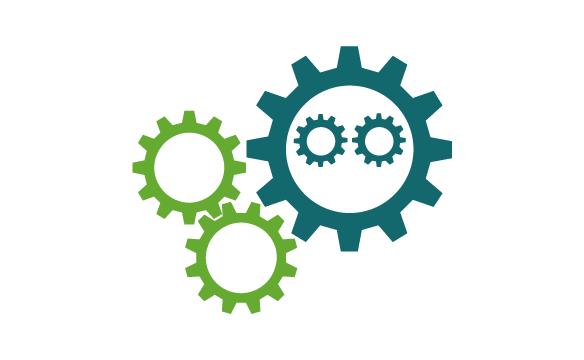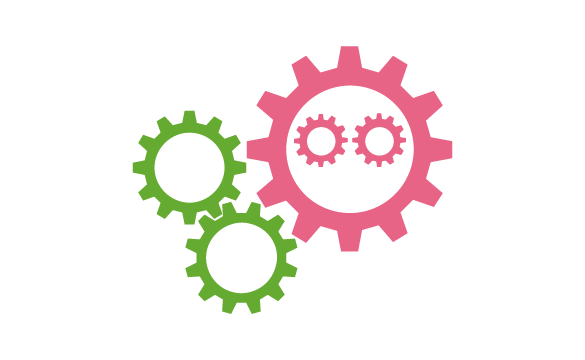Mental Heath Matters
Evidence shows that one in four of us will experience mental ill health at some point in our lives, which means that every organisation is likely to feel the effects sooner or later. Expertly developed and led training around mental health and wellbeing can play a crucial role in building a strong and sustainable approach.
Healthy people are happier, more engaged and more productive.
The business case for Mental Health Awareness and Mental Health First Aid Training
Work is good for health and health is good for business.
We all have mental health in the same way that we all have physical health. Mental health issues are common:
In 2020/21, stress, depression or anxiety were responsible for 50% of all cases of work-related ill health and the cost has gone up by 25% since 2019 to £56 billion. BUT, for every £1 spent on mental health interventions (including training), employers will get back around £5.30 in reduced absence, presenteeism and turnover.
(Deloitte – Mental Health & Employers: The case for investment – pandemic and beyond)
Resent research by Mind found that 60% of adults and 68% of young people said their mental health has become worse during lockdown and due to increased stressors related to coronavirus.
But many of us know little about mental health compared to our physical health. Stigma and lack of awareness can stop people from talking about their mental health, delaying them from getting the support needed for recovery.
This silence extends to the workplace. People often avoid disclosing a mental health issue to their employer for fear of being demoted, losing their job, or judged as less capable and missing out on opportunities. These concerns are justified if a Bupa poll is reflective of organisational attitudes to mental ill health: 94% of business leaders admitted to prejudice against people with mental health issues in their organisation.
The costs of ignoring mental health
Stress, anxiety and depression are the biggest cause of sickness absence in our society, causing 18 million days of absence in the UK in 2020-21.
(Office for National Statistics, 2021: Sickness absence in the labour market: 2021).
According to the Deloitte Review, mental ill health costs UK employers £6.1bn in absence, between £24.8 and £27.6bn in presenteeism (lost productivity, staff morale, health & safety issues, errors and quality of work) and £22.4bn in turnover – a massive increase from £8.6 billion and creating a national recruitment crisis.
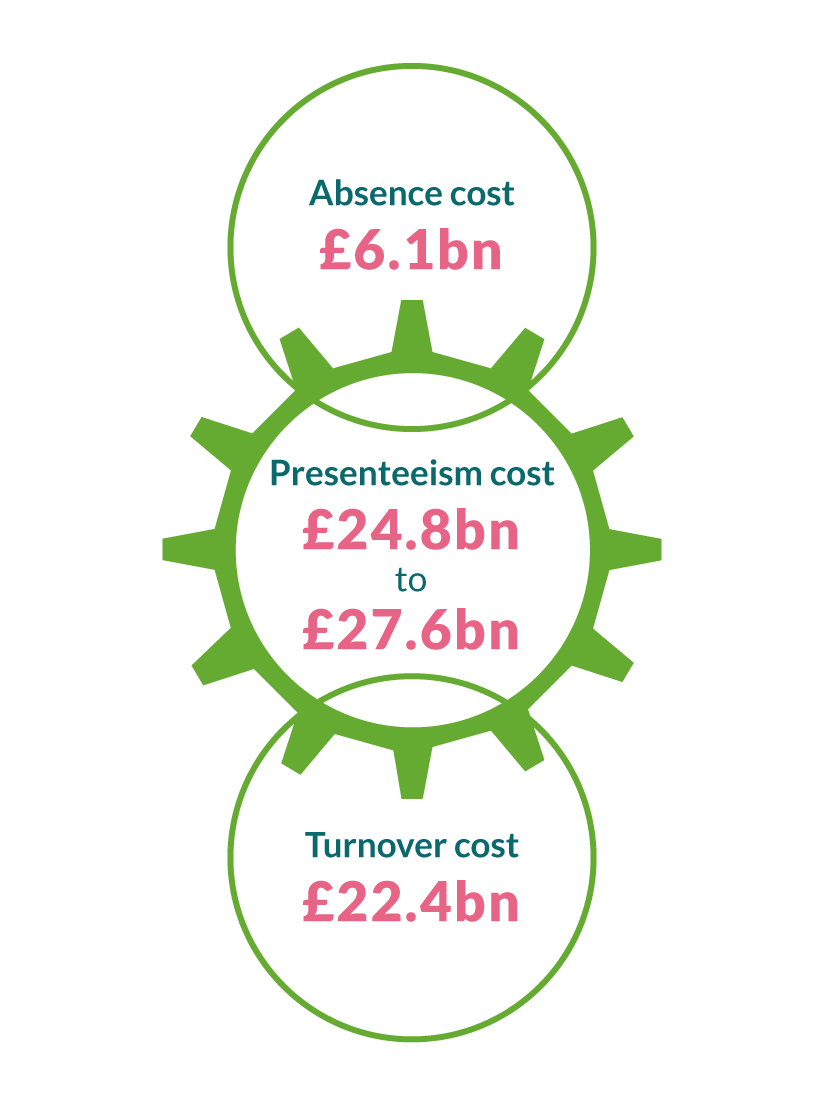
Triggers and Signs to Look Out For
Triggers:
Recognising a mental health need arising is the first step in getting the support needed to recover. One of the first signs of mental ill health may be changes in the person’s behaviour. It may seem harder to spot signs in remote workers but they are essentially the same:
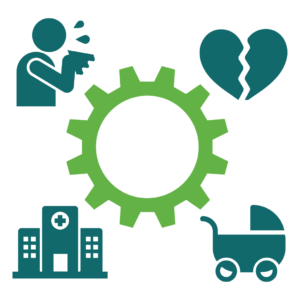
Personal life
Bereavement
Relationship breakdown
Having children
Health scares or physical illness

Work life
Workload
Poor line management
Relationships
Redundancy
Signs:
Recognising a mental health need arising is the first step in getting the support needed to recover. One of the first signs of mental ill health may be changes in the person’s behaviour. It may seem harder to spot signs in remote workers but they are essentially the same:
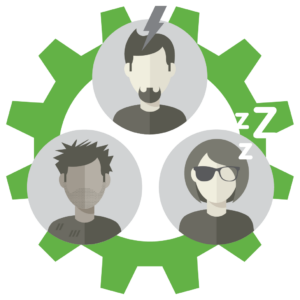
Physical signs
Frequent illness
Being run down and tired
Sleeping difficulties or excessive drowsiness
Lack of care over appearance

Emotional and behavioural
Irritability and aggression
Tearfulness or low mood
Excessive alcohol or stimulants
Decreased cognitive functioning – memory, concentration and perspective
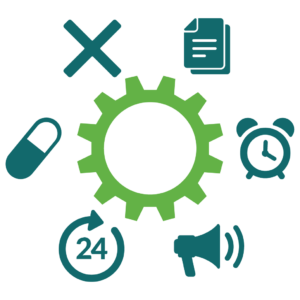
Work Related Signs
Making more mistakes
Decrease in productivity and reliability
Poor punctuality or working excess hours
Relationship breakdown and increase in complaints
Sickness absence
Change in online behaviour – turning camera off during meetings
Poor organisation
